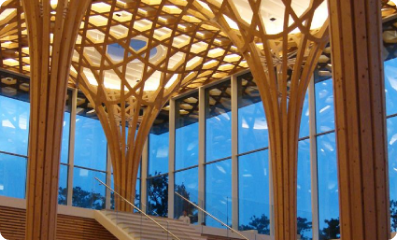Modern architecture for new homes is characterized by clean lines, simplicity, and the use of innovative materials and technologies. Here are some elements commonly seen in modern homes:
1. Open floor plans
Modern homes often feature open floor plans that create a sense of spaciousness and flow between rooms. This can include combining the kitchen, living, and dining areas into one large space.
2. Large windows
Modern homes often have large windows that let in natural light and blur the line between indoors and outdoors. This can also help to reduce the need for artificial lighting and provide passive solar heating.
3. Minimalism
Modern architecture emphasizes simplicity and minimalism, with clean lines and a focus on function over form. This can include the use of neutral colors, simple shapes, and minimal decorative details.
4. Sustainable materials and technologies
Modern homes often incorporate sustainable materials and technologies, such as recycled materials, energy-efficient appliances, and solar panels. This can help to reduce the home’s environmental impact and energy costs.
5. Integration with the surrounding environment
Modern architecture often seeks to integrate the home with the surrounding environment, such as through the use of natural materials and landscaping that complements the local ecosystem.
6. Flexibility and adaptability
Modern homes are often designed to be flexible and adaptable to changing needs, with features such as movable walls, multi-use spaces, and technology-enabled automation.
Conclusion
Modern architecture for new homes emphasizes simplicity, functionality, and sustainability, with a focus on open spaces, natural light, and the integration with the surrounding environment. By incorporating innovative materials and technologies, modern homes can offer both style and efficiency for homeowners.


